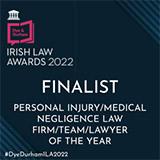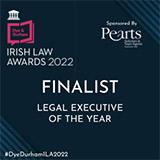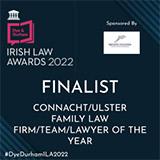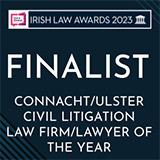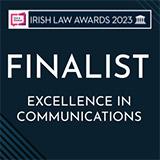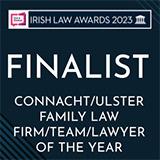Enduring Power of Attorney
A Power of Attorney is a legal device in Ireland that can be arranged by a person, known as a donor, who appoints a particular person, known as an attorney, to take actions on their behalf.
An Enduring Power of Attorney only takes effect when the donor becomes mentally incapacitated and no longer able to manage their affairs and it ceases on the death of the donor.
As an Enduring Power of Attorney involves the transfer of substantial powers from the donor to the attorney, there are a number of legal safeguards in place to protect the donor. The procedure for executing the Enduring Power of Attorney requires the involvement of a Solicitor and a Doctor. The Enduring Power will only come into effect once certain procedures have been followed.
The relevant legislation is the Enduring Powers of Attorney Regulations 1996 as amended. However, the Assisted Decision-Making (Capacity) Act 2015 provides new methods for those who wish to make an Enduring Power of Attorney. When the 2015 Act is commenced it will introduce a new protection regime and legal framework for supported decision-making for vulnerable adults. It will have a rights-based approach to decision-making capacity. The main elements of the act will replace the current wardship system for vulnerable adults.
An Enduring Power of Attorney can give as little or as much authority to the attorney as the donor wishes. It may just give authority to carry out specific acts on the donor’s behalf. This decision rests with the donor. The attorney may make certain personal care decisions on the donor’s behalf but these decisions must be made in the donor’s best interests and must be in accordance with what the donor would have likely done themselves. The attorney must consult family members and carers of the donor in making these decisions. There is no requirement for the attorney to be a relative of the donor. The donor is free to choose their attorney and they may choose more than one person to act as their attorney.
The donor must have the requisite mental capacity to execute an Enduring Power of Attorney. Capacity is defined as the ability to make decisions, understand the facts upon which a decision is based, the ability to retain those facts and to the ability to weigh up facts when making a decision. People are generally presumed to have capacity until proven otherwise. Capacity can be affected by illnesses such as Dementia and Alzheimer’s disease or by serious brain injury. People who are worried about losing capacity or are suffering from an illness that could affect their capacity in the future may want to consider establishing an Enduring Power of Attorney.
An Enduring Power of Attorney must be completed according to strict legal guidelines. It must be signed by the donor and by their attorney(s). The donor’s Doctor and Solicitor must also sign a declaration to say that the donor has capacity to make an Enduring Power of Attorney.
At least two people must be notified of the making of an Enduring Power of Attorney, neither of whom can be the attorney. One of the notice parties must be the donor’s spouse or civil partner if residing with them. If this does not apply, one of the notice parties must be the donor’s child or a relative.
An Enduring Power of Attorney may be granted to individuals or trust corporations but may not be granted to people under the age of 18 years, bankrupts, people convicted of offences involving fraud or people convicted of an offence against the donor. The Enduring Power of Attorney only comes into force fully when it has been registered and once medical evidence has been obtained, confirming that the donor is, or is becoming, mentally incapable of managing their affairs. An Enduring Power of Attorney can be revoked by the donor at any stage, before an application for registration is made. Once the Enduring Power of Attorney has been registered, it may only be revoked by way of an application the High Court. The High Court has a supervisory role in respect of the Enduring Power of Attorney, this includes the power to give direction about the management and disposal of the donor’s property. The Court can also make an order to cancel an Enduring Power of Attorney where it finds the attorney is unsuitable.
Berwick Solicitors can advise you on your requirements for an Enduring Power of Attorney. We will guide you through the process giving you the best advice.
If you would like to discuss the implications of creating an Enduring Power of Attorney please contact us to arrange an appointment.
Our Enduring Power of Attorney Team

REQUEST A CALLBACK
We're here to help.
Send us your details and we will be in contact as soon as possible.
